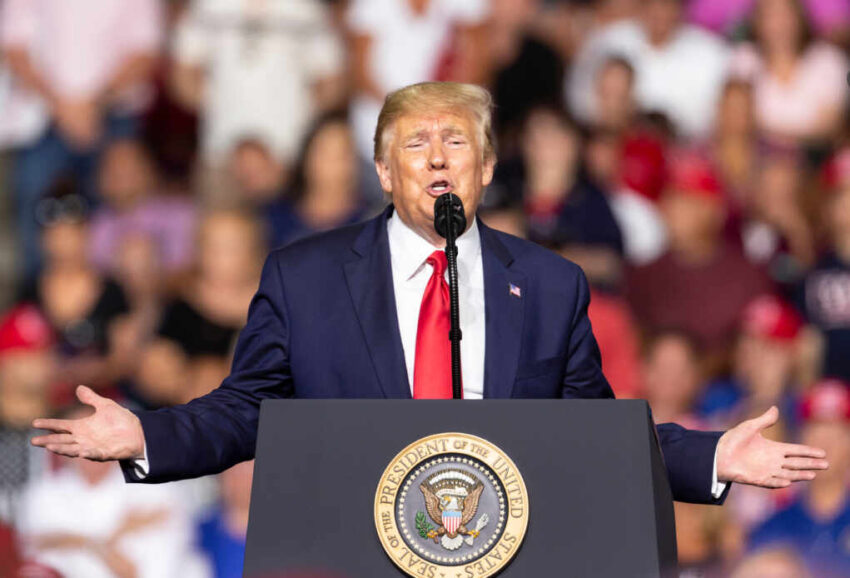President Trump’s proposal to transfer over $160 billion from domestic programs to military funding raises debates over priorities and national security.
At a Glance
- President Trump requests significant spending cuts in the next year’s budget.
- The proposed cuts total over $160 billion in non-defense areas.
- The funds would bolster defense spending significantly.
- Programs in Agriculture, Education, and Housing are among those targeted.
Budget Proposal Impact
President Donald Trump asks Congress for steep spending cuts to reallocate funds. The proposal seeks over $160 billion in reductions from non-defense sectors, emphasizing defense enhancements. This shift aligns with strengthening military capabilities, affecting departments like Agriculture, Education, and Housing. These modifications spark debates about the role of domestic programs in America’s broader governance landscape.
Supporters argue that increased military funding addresses security needs amidst global conflicts. Critics voice concerns over potential adverse effects on public services and domestic prosperity. Proposing cuts to essential programs raises questions about balancing security with social welfare, prompting a national dialogue on fiscal priorities.
Domestic Programs Under Threat
The proposal targets substantial cuts to domestic budgets, notably in Agriculture, Education, and Housing & Urban Development. The plan suggests a redistribution of funds which some perceive as undermining foundational social safety nets. The affected programs provide crucial services, and the decrease in their funding could lead to severe repercussions for many Americans.
“Donald Trump’s days of pretending to be a populist are over. His policies are nothing short of an all-out assault on hardworking Americans. As he guts healthcare, slashes education, and hollows out programs families rely on — he’s bankrolling tax breaks for billionaires and big corporations. It’s not just fiscally irresponsible, it’s a betrayal of working people from a morally bankrupt president.” – Chuck Schumer.
Proponents of the budget cuts argue for their necessity in strengthening national defense amidst global threats. Skeptics, however, question the feasibility of maintaining a functional government and society with diminished domestic program funding. Achieving a consensus in Congress might prove challenging as the nation weighs defense priorities against domestic welfare.
Prospects for Congressional Approval
The proposal now sits with Congress, where debates about its implications and potential consequences will unfold. Key legislative figures will need to balance the priorities of national defense with the socio-economic realities faced by citizens dependent on domestic programs.
“House Republicans stand ready to work alongside President Trump to implement a responsible budget that puts America first.” – Mike Johnson.
As discussions continue, the fiscal direction of the United States comes under scrutiny, compelling elected officials to reassess the equilibrium between safeguarding the country and fostering the nation’s welfare. The fate of this proposal remains uncertain, with many eyes on Congress to see how the legislative body will handle this potentially transformative budget plan.
Click this link for the original source of this article.
Author: Editor
This content is courtesy of, and owned and copyrighted by, https://republicanpost.net and its author. This content is made available by use of the public RSS feed offered by the host site and is used for educational purposes only. If you are the author or represent the host site and would like this content removed now and in the future, please contact USSANews.com using the email address in the Contact page found in the website menu.








